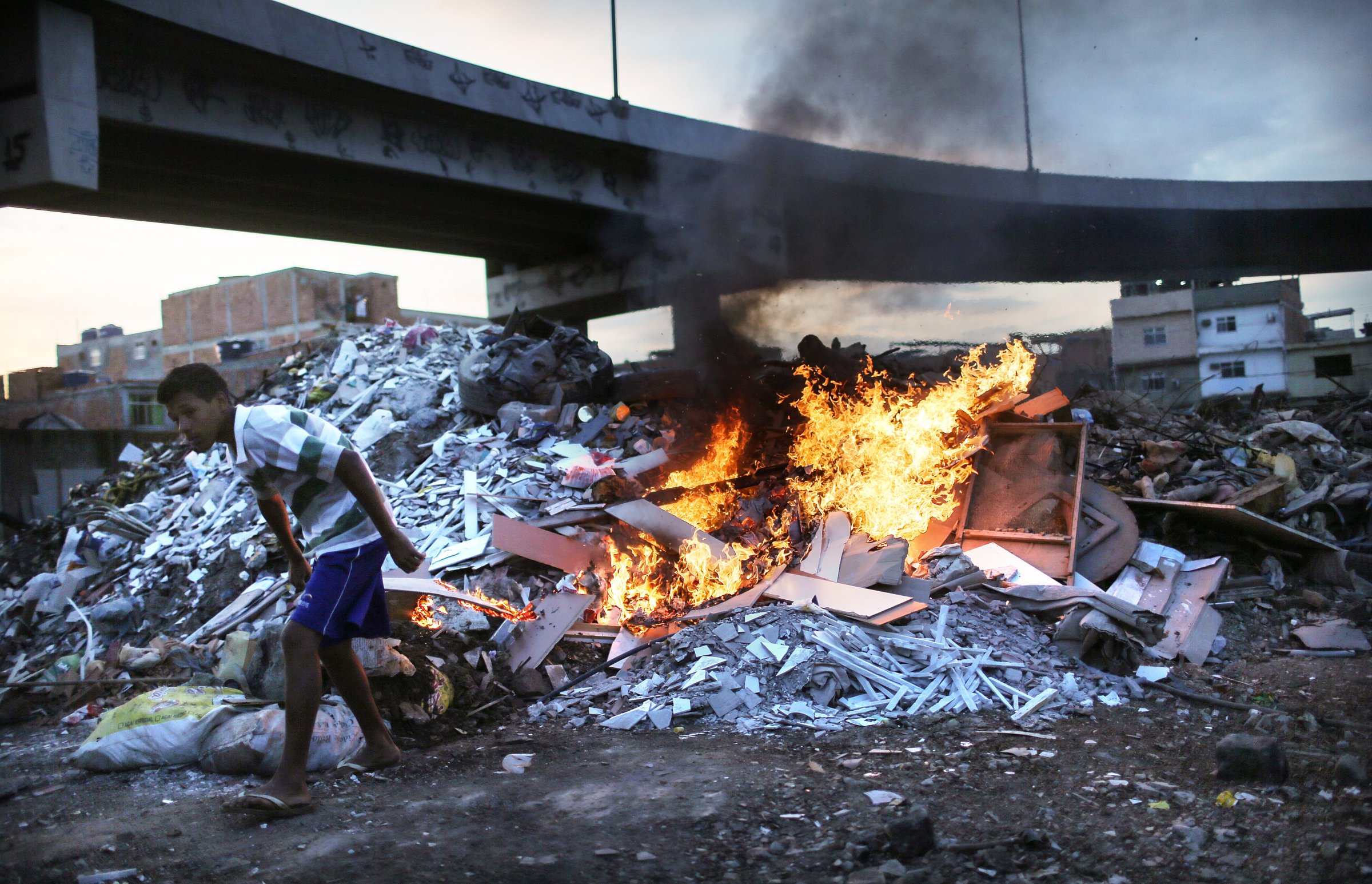
The Rio de Janeiro Olympic Games were supposed to be a celebration of Brazil and of all South America, the first Olympics held on the continent and one of few ever held in the Southern hemisphere. Here was a moment that seemed consistent with the original vision of the Olympic Games as a friendly international competition, of nations who might be rivals but were not enemies, of a world that could come together to celebrate athletic excellence and comity. It is safe to say that these idealistic impulses will be overwhelmed by a 2016 that continues to shock, a year in which the international order has been tested and found wanting.
The Rio Games will be a failure, no matter how successful they might be in terms of athletic accomplishment and spectator enjoyment, because our global sense of an international order has failed. It is a divided, distracted and even defeated international community that is slouching towards Rio.
The modern Olympic Games were founded in 1896 by Pierre de Coubertin, a French aristocrat who hoped that the games could offer a venue where gentlemen could compete on the playing field instead of the battlefield. Coubertin’s Olympic flag design of five interlocking rings—representing the five major continents and all the world’s nations—was adopted in 1914, but Coubertin’s vision was lost in the trenches of Europe.
In war and peace, in hot war and cold, the Olympics were more often than not a proxy battle for world leadership. For Americans, the greatest moment was the victory of the USA hockey over the Soviet Union in the Lake Placid Winter Olympics. But the Cold War also saw two boycotts—the American boycott of the Moscow Summer Games in 1980 and the Soviet boycott of the Los Angeles Summer Games in 1984—that undermined the pretense of international harmony.
Many nations have sought to use the Olympics to highlight their rising power. Germany’s 1936 Berlin Olympics were supposed to promote Hitler’s Aryan supremacy, China’s 2008 Olympics were a proclamation of the power and wealth of communist capitalism (or capitalist communism), and the 2014 Russian Olympics were a tribute to Russian President Vladimir Putin.
Yet some Olympics expressed hope for internationalism. Nations like Australia and Canada hosted Olympics showcasing their irreverent national personalities. Especially poignant in retrospect are the 1984 Winter Olympics in Sarajevo, Yugoslavia. Though at the height of the Reagan administration’s anti-Soviet rhetoric, Americans were charmed by images of a multiethnic communist nation hosting the world. Here was an Olympics that offered hope to a thaw in the Cold War world, a belief that the international order could provide a safety valve to defuse tensions and allow different world views to coexist. The terrible irony is that Sarajevo would be overwhelmed by civil war and genocide soon after the end of the Cold War, turning a successful Olympics into a footnote for later tragedy.
In Brazil, the national government is in crisis, and the local Rio government on the verge of bankruptcy. The beach that is supposed to revel in the exposed flesh of beach volleyball players recently was awash with dismembered body parts. Rio waterways teem with garbage and untreated human waste. The absence of some top athletes—including the withdrawal of multimillionaire golfers—will be contrasted with the rising misery of a host city, nation and continent that don’t have the choice of withdrawing, and who lack the public health resources to deal with staggering human cost of the Zika virus.
Even without these problems, the Olympic dream of extolling the international order would be a hollow exercise. Populism, nationalism, xenophobia, terrorism and war are the interlocking rings of our era. Communism clearly lost the Cold War. But what won? A “new world order” never emerged beyond a pursuit of hypercapitalist globalization. And this international order has been deeply shaken by the Great Recession, income inequality, falling oil prices, the Brexit and other rumblings in the E.U.
Americans are waiting for a disaster spectacle. They are waiting for an event that comes only every four years, an event that shows the highs and lows of human ambition and accomplishment, with ferocious competition and sacrifice, with winners and losers and cheers and tears, and with a seemingly built-in guarantee of failure and debacle. It will make remarkable television viewing.
That event is the Republican National Convention. If there is nothing new to binge on Netflix in August, maybe some Americans will even watch the Rio Olympics.
More Must-Reads from TIME
- Cybersecurity Experts Are Sounding the Alarm on DOGE
- Meet the 2025 Women of the Year
- The Harsh Truth About Disability Inclusion
- Why Do More Young Adults Have Cancer?
- Colman Domingo Leads With Radical Love
- How to Get Better at Doing Things Alone
- Michelle Zauner Stares Down the Darkness
Contact us at letters@time.com